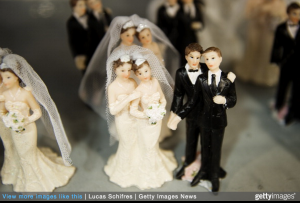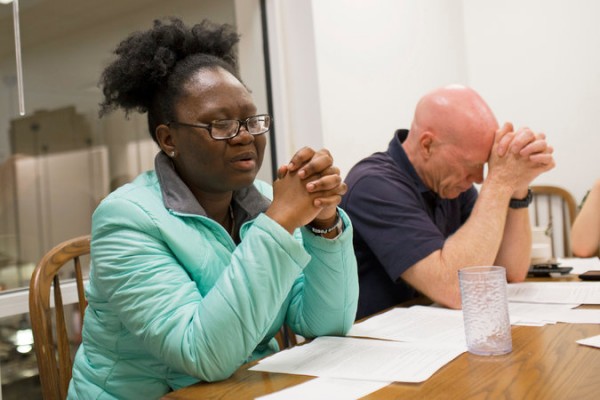
As a Christian lawyer — even when I was engaged in the “commercial” practice of law rather than the nonprofit, constitutional work I do now — I always drew moral lines around my representations decisions.I was not going to use whatever meager talents God gave me to advance or celebrate causes or principles I knew to be wrong. In other words, I discriminated. But not on the basis of race, gender, disability, or sexual orientation, but rather on the basis of the action or legal principle the case would advance. I’d happily represent anyone, gay or straight, in a commercial contract dispute. I would not represent anyone, gay or straight, who wanted to sue to make divorce easier or broaden the definition of marriage beyond the union of one man and one woman. I’d represent an adulterous cad if the state violated his rights to free speech, but I wouldn’t lift a finger to help him divorce his wife.
This distinction, between status and acts, or between and among different acts themselves, used to be a matter of common sense. And it certainly still is amongst lawyers. No one (yet) is telling me that to maintain my law license I have to represent anyone who asks for help, no matter the case or cause. But if I have artistic talent, now the rule is different: My talents are the community’s talents, or I’m “seceding” from society. So the Christian baker, who’s more than willing to bake a cake for anyone, gay or straight, man or woman, black or white, for — say — a birthday party or an office celebration, is now seceding from society if they’re unwilling to help celebrate a gay wedding.
That’s the contention of Jonathan Rauch, a guy I’ve long respected and whose book, The Kindly Inquisitors, is a must-read for anyone who questions the value of free speech in a pluralistic society. Unfortunately, his latest essay in The Atlantic, gets things exactly backwards. Accusing Christians of a “great secession,” of “walling themselves off from secular society,” he says this:
Culturally conservative Christians are taking a pronounced turn toward social secession: asserting both the right and the intent to sequester themselves from secular culture and norms, including the norm of nondiscrimination. This is not a good idea. When religion isolates itself from secular society, both sides lose, but religion loses more.
I’d counter with a different construct: Ideologically aggressive government and its cultural allies are taking a pronounced turn toward social aggression: expanding the reach of government into decisions that American culture and norms have traditionally left to the private sphere. That is not a good idea. When government power intrudes upon Christian conscience, both sides lose, but government ultimately loses more.
We just ended a news cycle when the Left and its allies in the federal government (and the front-runner in the next presidential race) had an absolutely hysterical over-reaction to the news that a Christian family business couldn’t be forced to pay for pills that could kill children. The fact that this same Christian family will provide, free of charge, 16 different contraceptives to its female employees was apparently immaterial. Christians were “hurting” women. Rather than viewing the undemocratic expansion of Obamacare (remember, the HHS mandate was regulatory, not statutory) as an aggressive government action, the alleged aggressors were Christians who weren’t willing to sacrifice their liberty and their conscience. But here’s Rauch on the Christian desire to be left alone:
Still, the desire to be left alone takes on a pretty aggressive cast when it involves slamming the door of a commercial enterprise on people you don’t approve of. The idea that serving as a vendor for, say, a gay commitment ceremony is tantamount to “endorsing” homosexuality, as the new religious-liberty advocates now assert, is a far-reaching proposition, one with few apparent outer boundaries in a densely interwoven mercantile society. It suggests a hair-trigger defensiveness about religious identity that would have seemed odd just a few years ago. As far as I know, during the divorce revolution it never occurred to, say, Catholic bakers to tell remarrying customers, “Your so-called second marriage is a lie, so take your business elsewhere.” That would have seemed not so much principled as bizarre.
I’d respectfully suggest that Rauch doesn’t quite know what he’s talking about here. Down in the Evangelical South, where I grew up, and in the Evangelical culture where I’ve lived my entire life, we’ve got a long tradition of refusing to participate in immoral acts. I can’t count the number of times I’ve talked to Christian business owners who’ve drawn lines around their businesses, but none of those events made news because they didn’t involve a legally or culturally favored identity-group.
A prime example of this phenomenon is the academic world’s treatment of Christian student groups. For generation after generation Christian groups have taken disciplinary action against leaders who engage in heterosexual sin. Whether they’re “hooking up” or cohabiting, Christian student groups have long asked straight students to step down from leadership when they’ve crossed moral lines, especially when they’re unrepentant. They operated for decades on campus without controversy. But now they’re exposed to a massive assault on their most basic rights of free association, about to face expulsion from the entire Cal State system, for example, unless they allow their leaders to engage in homosexual sexual activity.
There is no “hair trigger defensiveness” from Christians. There is no desire to “secede” — unless our democracy has devolved so much that the quest to maintain historically-protected religious liberty rights is now “secession.” In his closing, Rauch declares the following:
This much I can guarantee: the First Church of Discrimination will find few adherents in 21st-century America. Polls find that, year by year, Americans are growing more secular. The trend is particularly pronounced among the young, many of whom have come to equate religion with intolerance. Social secession will only exacerbate that trend.
I’d respond with my own guarantee. The best way to destroy a faith is to abandon it. Just ask mainline Protestants. They’re no longer recognizably Christian, they’re prone (like the PCUSA) to embrace vile evils like abortion and anti-Semitism, and they conform to the culture and lose adherents by the hundreds of thousands. After all, why go to church when you can get the same sermon from the Sunday New York Times?
Rauch may be correct in the short term that orthodox Christians may find themselves further isolated. But we’re not seceding. Far from it. In fact, we’re embracing the nation’s founding principles — principles designed from the beginning to protect minority viewpoints. When it comes to determining which values are more fundamentally American, more consistent with our history and culture, I’ll take the First Amendment over a university diversity policy. In fact, I’d say that if anyone is “seceding” from the Land of Liberty, it’s those who would use the power of government to deny citizens their “unalienable rights” — even if the oppressors believe their cause is just and their intentions are pure.
Read more on the Patheos Faith and Family Channel and follow David on Twitter.









